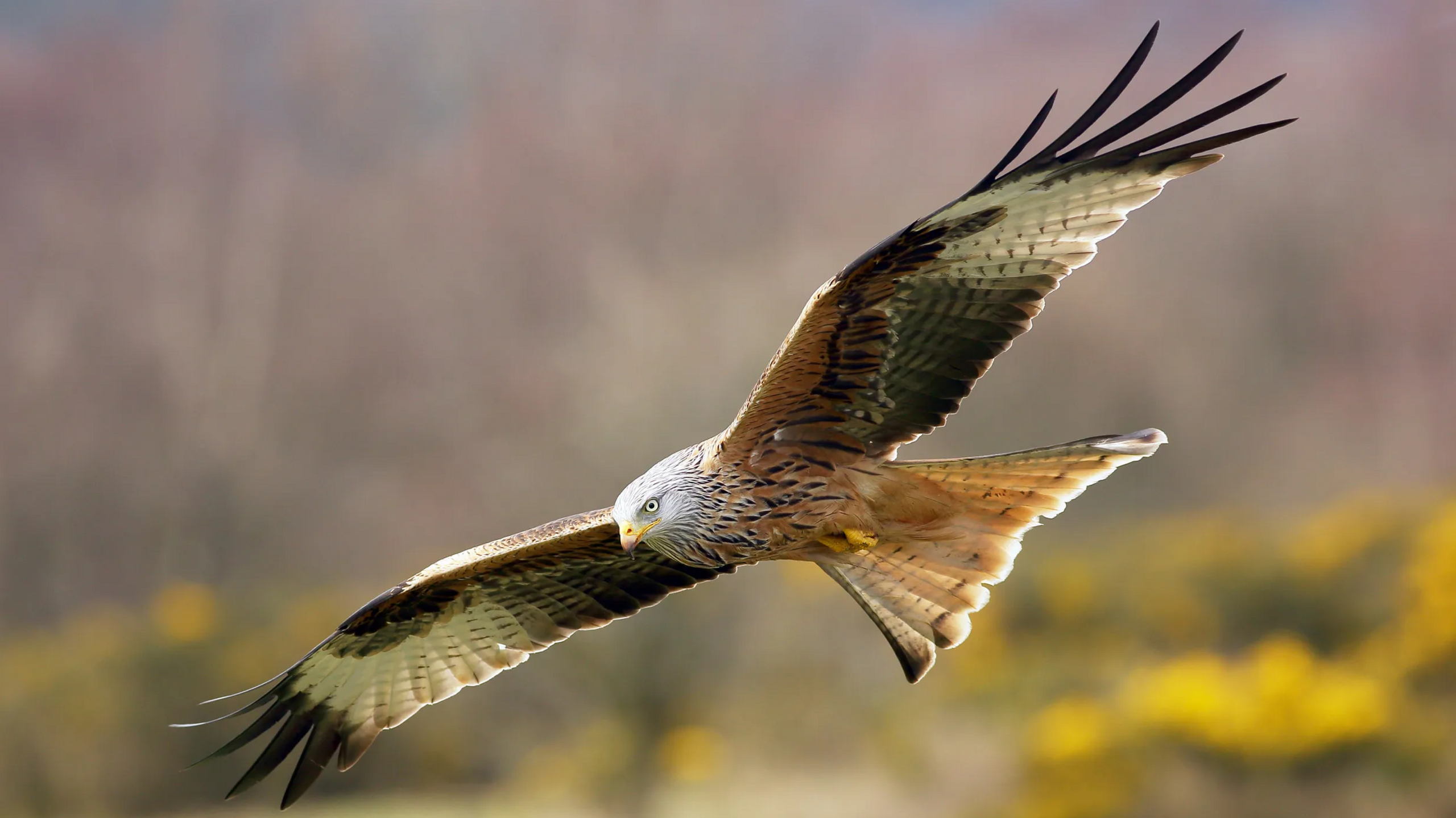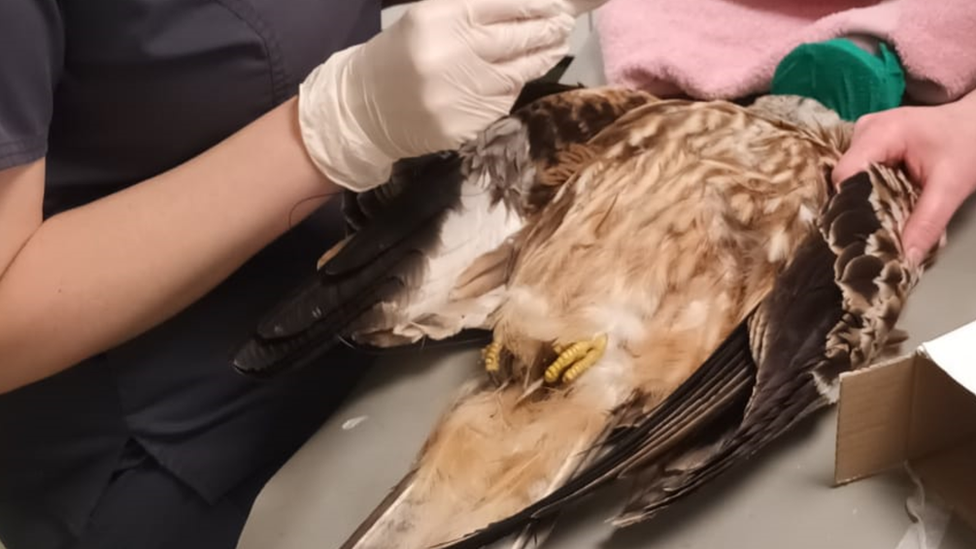'I felt goosebumps when first red kites arrived'

The birds were first reintroduced to the region in 2004
- Published
A conservationist has told how he felt "goosebumps" when he saw the first of a new colony of red kites arrive as part of a major reintroduction project 20 years ago.
The Northern Kites project released almost 100 of the birds of prey into the lower Derwent Valley in Gateshead, Tyneside, between 2004 and 2006.
The birds used to be a common sight in Britain but damage to their habitats meant they were all but extinct from the country by the 19th Century.
RSPB official Pat Thompson said he was "staggered" it had been two decades since the start of the scheme.
It followed several other red kite reintroduction projects across the UK.
Mr Thompson said the difference with the project in north-east England was that the team made a "strategic decision" to bring the birds back "right on to the edge" of the urban population.
"This is a species that has a long history of being close to people," he said.
'Bit of history'
The first birds were brought up from the Chilterns.
"I remember thinking this is a bit of real history," said Mr Thompson.
"Those first moments, they're really vulnerable then. You don't always know how those sorts of animals are going to settle into a new area of habitat."
At that early stage the birds face a strong risk from other predators, vehicle crashes and even starvation, Mr Thompson said.
He said the team initially hid food stashes across the Derwent Valley, which spans parts of Gateshead and County Durham, so the birds could get used to scavenging.
Friends of the Red Kites volunteer Harold Dobson, who has been regularly monitoring the birds in the area since 2009, said there were about 150 to 170 of the birds in the area now.
"The ones we're seeing now, I suppose you could say are the grandchildren of those first birds," he said.
Follow BBC North East on X, external, Facebook, external, Nextdoor, external and Instagram, external. Send your story ideas to northeastandcumbria@bbc.co.uk.
Related topics
More stories from BBC North East and Cumbria
- Published31 March 2023
